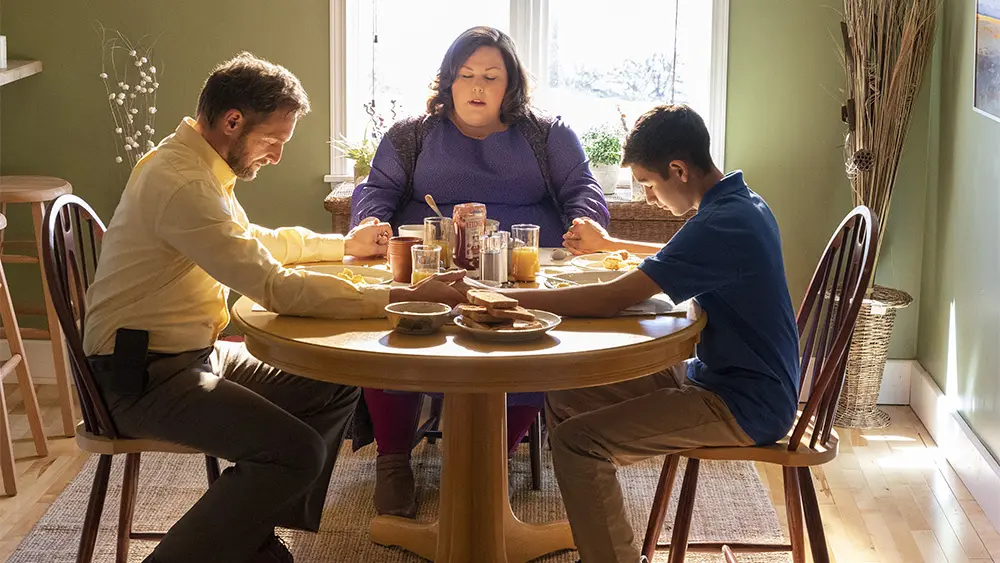Summary
Breakthrough is well-made, has some competent performances, and in general is a step in the right direction for the genre. However, the script is sexist and bordering on misogynistic. Sadly, this film brought out my inner feminist.
The faith-based film genre is a heavy-handed bunch. They have their own concise point of view. Even manipulative methods drag you over to their side because they feel it’s good medicine. The Kendrick brothers are an example of this. They produce films like this for years and unapologetically writing them like speeches for a Sunday sermon. So, for every War Room, Courageous, and the upcoming Overcomer, you are given the faith-based film that subtlety preaches to the masses without hitting you over the head with it. Breakthrough falls into the latter category. A production value that lifts the genre, with a handful of competent performances from its cast. Unfortunately, the film has a sexist script that may not border on misogynistic. It views women in a Christian world as subservient.
Breakthrough is based on an inspirational true story of John Smith (One Day at a Time’s Marcel Ruiz). A teenager fell through an ice-covered lake near St. Louis, Missouri. He was underwater for more than 15 minutes before being pulled out. His mother (Chrissy Metz) never loses faith, even though John’s father (Josh Lucas) has. Emergency responder Tommy Shine, who was about to give up on finding the teenager, hears a voice he thinks is his boss, telling him to go back and find him. He later finds out his boss never gave him that direction.
Even though John is declared dead by an emergency-room physician (True Blood’s Sam Trammell), a pulse suddenly appears after Joyce begs for him to be saved. There is a subplot as Topher Grace plays the quintessential Kirk Cameron character. A new pastor that befriends John before the accident. Even though Joyce disagrees with his modern tweaks on worship (there is a scene where he introduces rock and rap music instead of hymns, which is nothing new if you have ever been to any Harvest Sunday service in the United States).
The film was directed by Roxann Dawson, who has over 50 television episodes under her belt for some of the better efforts this decade. There is nothing wrong with the direction here, in her feature-film debut. She has helmed television episodes with strong female characters before. Like Julianna Margulies in The Good Wife, Jill Hennessey in Crossing Jordan, and Keri Russell in The Americans. Dawson has a keen eye, does a nice job of framing the camera to capture the proper emotions.
For instance, the scene with Mike Colter’s character searching the bottom of the lake for what is assumed to be John’s lifeless body. So, one would think her previous work would highlight a film that has a strong female lead. Along with the film being produced by DeVon Franklin, who was behind Miracles from Heaven, which featured a terrific performance from Jennifer Garner, it would seem to be a natural fit. Unfortunately, the script doesn’t love women as it puts up with them.

In the #MeToo movement, this film goes the other way as it is filled with cliched male characters that mansplain to the female protagonist why she is wrong, and she is forced to apologize when she has absolutely no need to do so. One can argue that this would be the Christian thing to do, but why are none of the male characters swallowing their pride? In one questionable scene, the new preacher in town is overwhelmingly condescending and, frankly, rude to the Joyce character; this is unbecoming of anyone in a leadership position. Does he apologize?
No, but the other supporting female characters question Joyce on why she is so rude to him. Even over her son’s bed, who is in a medically induced coma, Joyce is forced to apologize to the Pastor. Now, we aren’t just talking about the Doctors in the film; they are paid to know better about someone’s prospective medical outcomes. That’s understandable, if anything, and can be condoned. There is an endless conversation where her husband, pastor, and medical professionals mansplain the situation. The Topher Grace and Josh Lucas characters are particularly egregious in this regard and can be off-putting.
There are some overall positive aspects of the film that deserve to be highlighted. The inspirational true story is naturally cinematic, and the performances are above the standard of the faith-based genre. This Is Us actress Chrissy Metz is fine here, showing enough strength that comes across on the screen to stand up to the doubters of her son’s fate. The film’s best scene comes from actor Dennis Haysbert, the physician who is an expert in drowning cases, as he explains to the Metz character how he doesn’t understand what happened in front of his own eyes. Actor Mike Colter (Marvel’s Luke Cage) also deserves mention, being the focal point of the film’s most intense scene and struggling with his newfound faith in God when he didn’t believe in him (or her) before.
Overall, you want to like and even love Breakthrough; there is nothing wrong if you do. There are worse ways to spend two hours. The film does represent a step in the right direction. In this way, the tone of the story questions Joyce’s faith that is realistic when compared to other films in the genre. Instead of the entire cast preaching to only one character’s lack of faith. However, as I said before, the sexist script brought out my inner feminist. This is something faith-based films have to address in future works.




